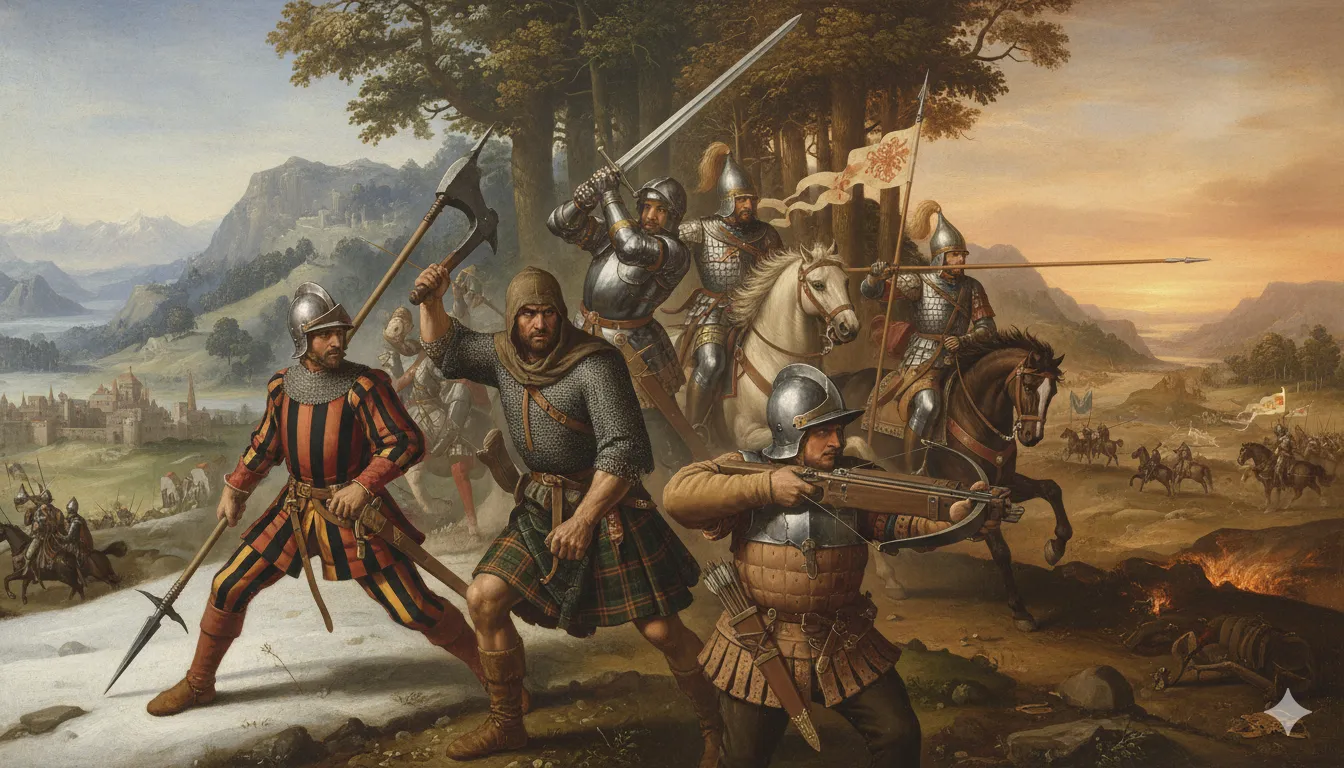
Mercenary Company Personality Test
Which Historical Mercenary Were You?
Legendary mercenary companies that roamed medieval Europe (1300-1600).
Discover which historical mercenary company matches your personality!
📊
5 Trait Analysis
Comprehensive analysis of combat, organization, motivation, tactics, and loyalty
🏰
20 Historical Companies
From the honorable Varangian Guard to the infamous Great Company
📸
Share Results
Save your results as an image and share with friends
1 / 25
Question 1
⚔️
⚔️
Characteristics
🗡️
Combat Style
🏛️
Organization
💎
Motivation
⚙️
Tactics
🤝
Loyalty
🏰
Prosperity
💔
Decline
⚔️
Major Battles
📊
5 Trait Axis Guide
1. Combat Style
Higher scores indicate aggressive and bold tendencies, preferring preemptive strikes. The Catalan Company was notorious for brutal attacks known as the "Catalan Vengeance," the Great Company terrorized all of Italy with ruthless aggression, and the Gallowglasses wielded massive axes to break through enemy lines. Lower scores reflect a preference for defense and tactics, such as the Genoese Crossbowmen who controlled enemies from a distance, and the White Company, which gained fame through disciplined defensive tactics.
2. Organization
Higher scores emphasize strict discipline and structure. Swiss Mercenaries enforced rigorous training to maintain perfect pike formations, and the Varangian Guard, as the emperor's elite bodyguard, allowed not a single deviation. In contrast, the Routiers operated as lawless bands with almost no central control, while the English Free Companies operated through democratic decision-making regarding loot distribution.
3. Motivation
Higher scores prioritize honor and ideology. Hussite Mercenaries defeated five crusades for their religious beliefs, and the Company of St. George placed Christian values and chivalry above all else. Gallowglasses valued honor most, considering their bravery sung by poets as the highest reward. Conversely, the Great Company pursued pure plunder with the motto "Enemy of God, Enemy of Piety, Enemy of Mercy," the English Free Companies roamed France seeking loot, and the Sforzas successfully ascended from mercenary to Duke of Milan through their activities.
4. Tactics
Higher scores favor innovative and bold tactics. Hussite Mercenaries defeated crusades with the unprecedented tactic of linked wagons as mobile fortresses, Braccio swept through Italy with daring maneuver warfare rejecting conventional tactics, and Stratioti first introduced Greek-style light cavalry tactics to Western Europe. Lower scores trust proven traditional methods. Genoese Crossbowmen adhered to crossbow techniques maintained for centuries, and Gallowglasses faithfully inherited Celtic traditional axe warfare.
5. Loyalty
Higher scores emphasize honor and faith. Swiss Mercenaries were famous for never breaking contracts once made, and the Varangian Guard protected the emperor until Constantinople fell. The White Company's commander John Hawkwood was honored with a statue in the Duomo for his loyalty to Florence. Conversely, the Catalan Company ravaged Greece in revenge after being betrayed by the Byzantine Empire, the Sforzas continually changed masters to the highest bidder, and Condottieri behaved opportunistically, negotiating with enemies even during battle.